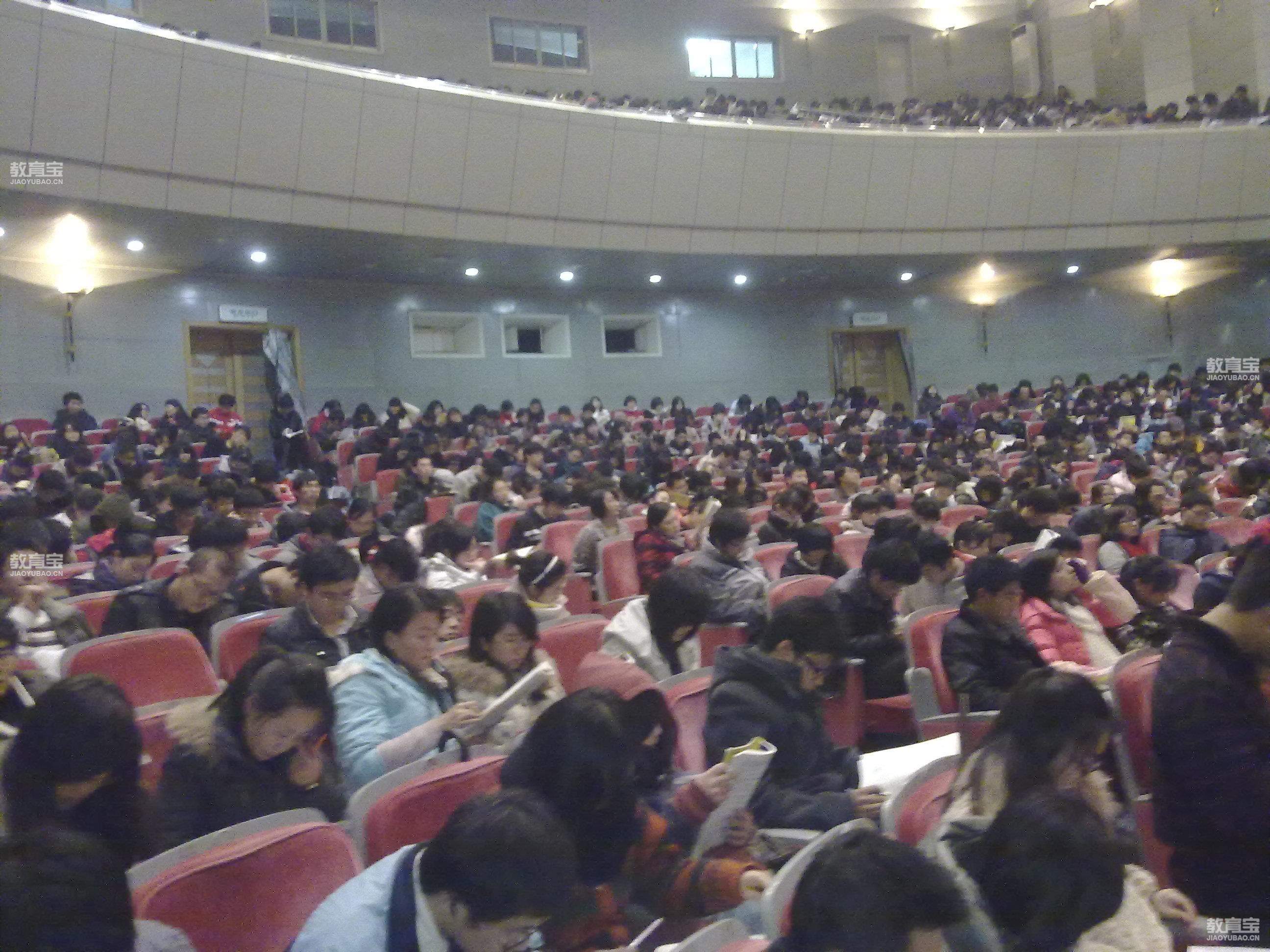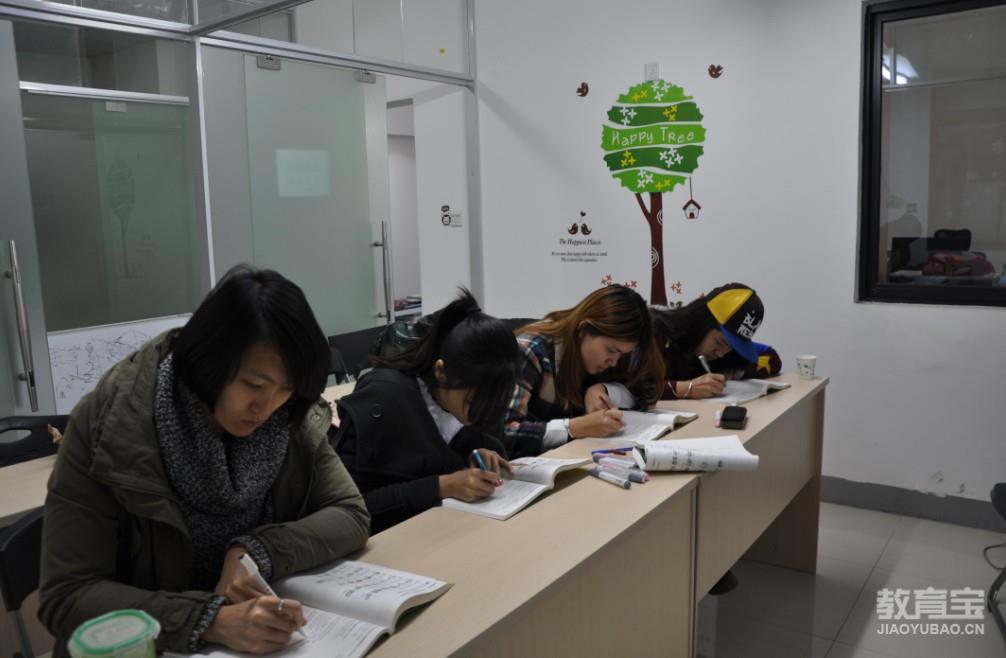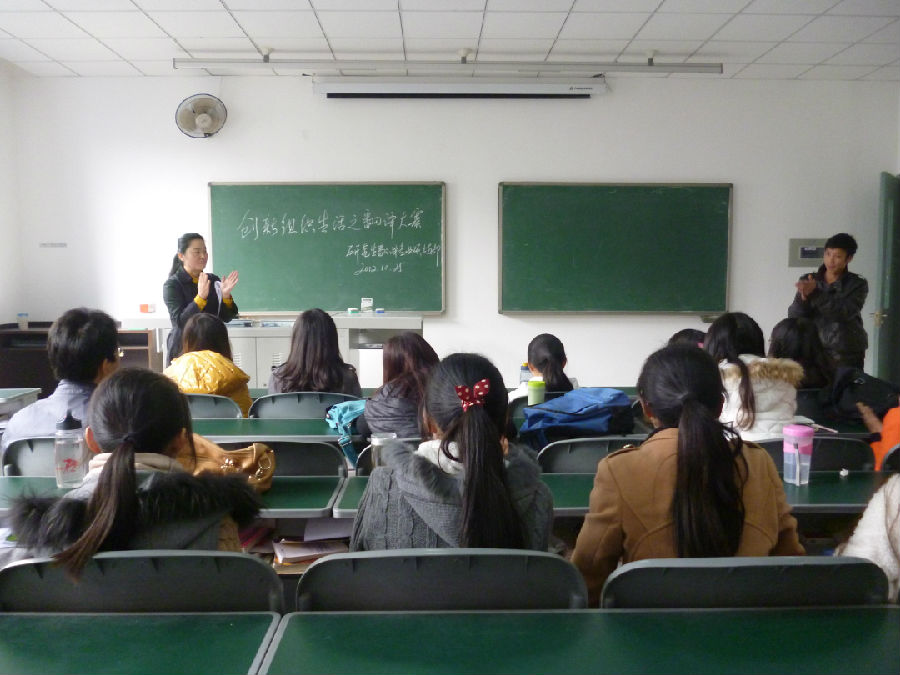 返回
教育头条
返回
教育头条

考研英语二有哪些常错的知识点 考研培训
在考研英语(一)中,翻译题作为阅读理解板块的组成部分,是从一篇长文中挑选出5个长难句,展开英译汉翻译。而考研英语(二)中,翻译题则是独立的板块,需要对一篇150词的短文展开整篇翻译。
应对英(一)翻译,关键是长难句,而要想做好英语(二)的翻译,则要从一些常见的易混基础知识点练习起。为此,播哥为大家精选了几组特别容易出错的翻译,虽然简单(仅为初中水平)但十分重要,供今年要考英语(二)的考研党们参考。
as…as…;too…to…与not so …as…
1.as……as……表示“与……一样”
如:你和汤姆是一样好的孩子。
You’re a boy as good as Tom.=You’re as good a boy as Tom.
2.too…to… 表示 “太……而不能……”
含义等于so…that sb. can’t…
但前者为简单句,主语只有一个,而后者为复合句,主语有两个,试比较:
The man was too angry to be able to speak.
The man was so angry that he wasn’t able to speak.
too…to…含义也等于not enough to……:
如:He is too young to get married.=
He is not old enough to get married.
再如:The book is too difficult for me to read.=
The book is not easy enough for me to read.
3. not so ……as……是一种形容词原级表示比较级的用法。
如:约翰不像迈克那么蠢。
John is not so stupid as Mike.=
John is less stupid than Mike.=

John is cleverer than Mike.
than any other;the more……the more……与more and more
1. than any other 用比较级表示高级:
如,约翰是班里高的男生。
John is taller than any other boy in the class.=
John is the tallest boy in the class.
2.the more….. the more….表示“越……越……”:
The more books you read, the wider your knowledge is.
The more food you eat, the fatter you are.
3.more and more….表示“越来……越……”:
More and more students realized the importance of a foreign language.
Our country is getting stronger and stronger.
after与in(表示时间)
这两个介词都可以表示“……(时间)以后”的意思
1. after 以过去为起点,表示过去一段时间之后,常用于过去时态的句子中。
如:She went after three days.
她是三天以后走的。
2. in 以现在为起点,表将来一段时间以后,常用于将来时态的句子中。
如:She will go in three days.
她三天以后要走。
how long, howoften与how soon
1. how long指多长时间,主要用来对一段时间(如three days, four weeks 等)提问。
如:How long ago was it?
这是多久前的事了?
2. how often指每隔多久,主要用来对频率副词或状语(如once a week等)提问。
如:—How often does he come here?
—Once a month.
他(每隔)多久来一次?每月一次。
3. how soon指再过多久,主要用来对表示将来的一段时间(in an hour, in twoweeks 等)提问。
如:How soon can you come?
你多快能赶来?
few, a few, little, a little, several与some
1.few 和little的意思是否定的,表示“很少”或“几乎没有”;而a few和a little的意思是肯定的,表示“有一些,有一点儿”
2. few 和 a few修饰可数名词;little 和 a little 修饰不可数名词。
3. several用于修饰可数名词,语意比a few和some更肯定,含有“好几个”的意思。
4. some可修饰可数名词,也可修饰不可数名词,从数量上说,它有时相当于a few 或 a little,有时指更多一些的数量。
the other与another
1. the other 指两个人或事物中的“另一个”,表示特指。
如:We stood on one side of the road and they stood on the other.
我们站在街这边,他们站在那边
2. another着重于不定数目中的“另外一个”,表示泛指,所以常用来指至少三个中的一个。
如:She has taken another of my books.
她已经拿了我的另外一本书
each与every
两词都是“每个”的意思,但着重点不同。

1.each着重个别的情况
2. every着重全体,有“所有的”的意思。
如:She knows each student of the class.她认识这个班里的每一个学生。She knows every student of the class.她认识这个班所有的学生。
no one与none
1. no one指“没有人(只能指人,不能用来指物)”,意思与nobody相同,作主语时不必跟of连用,如:No one believes him since he is not honest. 没有人相信他,因为他不诚实。No one else but I went. 除我以外,谁也没去。
2. none指“一个也没有(既可指人,也可指物)”,作主语时代替不可数名词,谓语动词用单数形式;代替可数名词,谓语动词用单、复数都可以。但在“主 系 表”结构中,如果表语为复数,则系动词要用复数形式。如:None of us are(is) afraid of difficulties. 我们谁也不怕困难。
much too与too much
二者都有“太,非常”之意,
1. much too为副词词组,修饰形容词和副词,不可修饰动词。
如:It’s much too cold.天气实在是太冷了。
2. 但 too much作“太多”讲,有以下三种用法:
(1)作名词词组
如: You have given us too much. 你给我们的太多了。
(2)作形容词词组修饰不可数名词
如: Don’t drink too much wine. 不要饮太多的酒。
(3)作副词词组修饰不及物动词
如: She talks too much. 她说话太多。
应对英(一)翻译,关键是长难句,而要想做好英语(二)的翻译,则要从一些常见的易混基础知识点练习起。为此,播哥为大家精选了几组特别容易出错的翻译,虽然简单(仅为初中水平)但十分重要,供今年要考英语(二)的考研党们参考。
as…as…;too…to…与not so …as…
1.as……as……表示“与……一样”
如:你和汤姆是一样好的孩子。
You’re a boy as good as Tom.=You’re as good a boy as Tom.
2.too…to… 表示 “太……而不能……”
含义等于so…that sb. can’t…
但前者为简单句,主语只有一个,而后者为复合句,主语有两个,试比较:
The man was too angry to be able to speak.
The man was so angry that he wasn’t able to speak.
too…to…含义也等于not enough to……:
如:He is too young to get married.=
He is not old enough to get married.
再如:The book is too difficult for me to read.=
The book is not easy enough for me to read.
3. not so ……as……是一种形容词原级表示比较级的用法。
如:约翰不像迈克那么蠢。
John is not so stupid as Mike.=
John is less stupid than Mike.=

John is cleverer than Mike.
than any other;the more……the more……与more and more
1. than any other 用比较级表示高级:
如,约翰是班里高的男生。
John is taller than any other boy in the class.=
John is the tallest boy in the class.
2.the more….. the more….表示“越……越……”:
The more books you read, the wider your knowledge is.
The more food you eat, the fatter you are.
3.more and more….表示“越来……越……”:
More and more students realized the importance of a foreign language.
Our country is getting stronger and stronger.
after与in(表示时间)
这两个介词都可以表示“……(时间)以后”的意思
1. after 以过去为起点,表示过去一段时间之后,常用于过去时态的句子中。
如:She went after three days.
她是三天以后走的。
2. in 以现在为起点,表将来一段时间以后,常用于将来时态的句子中。
如:She will go in three days.
她三天以后要走。
how long, howoften与how soon
1. how long指多长时间,主要用来对一段时间(如three days, four weeks 等)提问。
如:How long ago was it?
这是多久前的事了?
2. how often指每隔多久,主要用来对频率副词或状语(如once a week等)提问。
如:—How often does he come here?
—Once a month.
他(每隔)多久来一次?每月一次。
3. how soon指再过多久,主要用来对表示将来的一段时间(in an hour, in twoweeks 等)提问。
如:How soon can you come?
你多快能赶来?
few, a few, little, a little, several与some
1.few 和little的意思是否定的,表示“很少”或“几乎没有”;而a few和a little的意思是肯定的,表示“有一些,有一点儿”
2. few 和 a few修饰可数名词;little 和 a little 修饰不可数名词。
3. several用于修饰可数名词,语意比a few和some更肯定,含有“好几个”的意思。
4. some可修饰可数名词,也可修饰不可数名词,从数量上说,它有时相当于a few 或 a little,有时指更多一些的数量。
the other与another
1. the other 指两个人或事物中的“另一个”,表示特指。
如:We stood on one side of the road and they stood on the other.
我们站在街这边,他们站在那边
2. another着重于不定数目中的“另外一个”,表示泛指,所以常用来指至少三个中的一个。
如:She has taken another of my books.
她已经拿了我的另外一本书
each与every
两词都是“每个”的意思,但着重点不同。

1.each着重个别的情况
2. every着重全体,有“所有的”的意思。
如:She knows each student of the class.她认识这个班里的每一个学生。She knows every student of the class.她认识这个班所有的学生。
no one与none
1. no one指“没有人(只能指人,不能用来指物)”,意思与nobody相同,作主语时不必跟of连用,如:No one believes him since he is not honest. 没有人相信他,因为他不诚实。No one else but I went. 除我以外,谁也没去。
2. none指“一个也没有(既可指人,也可指物)”,作主语时代替不可数名词,谓语动词用单数形式;代替可数名词,谓语动词用单、复数都可以。但在“主 系 表”结构中,如果表语为复数,则系动词要用复数形式。如:None of us are(is) afraid of difficulties. 我们谁也不怕困难。
much too与too much
二者都有“太,非常”之意,
1. much too为副词词组,修饰形容词和副词,不可修饰动词。
如:It’s much too cold.天气实在是太冷了。
2. 但 too much作“太多”讲,有以下三种用法:
(1)作名词词组
如: You have given us too much. 你给我们的太多了。
(2)作形容词词组修饰不可数名词
如: Don’t drink too much wine. 不要饮太多的酒。
(3)作副词词组修饰不及物动词
如: She talks too much. 她说话太多。
如果大家通过上面的阅读,还想了解更多考研相关信息,可以关注我的微信18560125702,我会为你匹配最适的学习方案,选课有问题,快来找学姐,嘻嘻。返回教育宝头条
【免责声明】本文仅代表作者本人观点,与教育宝无关。教育宝对文中陈述、观点判断保持中立,不对所包含内容的准确性、可靠性或完整性提供任何保证。请读者仅作参考,特此声明!





